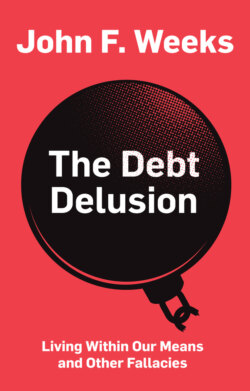Читать книгу The Debt Delusion - John F. Weeks - Страница 10
Austerity Politics and Reality
ОглавлениеThe austerity-implementing EU governments were repeatedly confronted with the TINA argument by the institutions and governments funding their “bailouts.” Unqualified, definitive judgments such as TINA-justified austerity policy frequently derive from abstract reasoning divorced from the nuances of concrete experience. These definitive policy judgments frequently emerge from carrying an otherwise reasonable hypothesis to its logical extreme.
Mainstream economics provides an example of such a judgment. All economists share the insight that market economies possess self-adjustment mechanisms. To pursue that insight to the special case conclusion that adjustment quickly leads to full employment represents reductio ad absurdum. An otherwise valid insight, that market economies are characterized by relative stability, reaches an extreme conclusion that contradicts reality. The circle of improbability is squared by using the ideal outcome as the ruler to judge reality. In a triumph of logic over reality, the abstract principle treats as the problem the failure of reality to conform to the ideal.
Austerity policies involve a political choice. They do not come from imperatives of real-world economic conditions. They do not represent the accumulated wisdom of economic analysis and theory. The TINA principle does not apply to them. Austerity policies find their verisimilitude, the appearance of truth, in a series of interconnected myths, which the rest of this book deconstructs.
